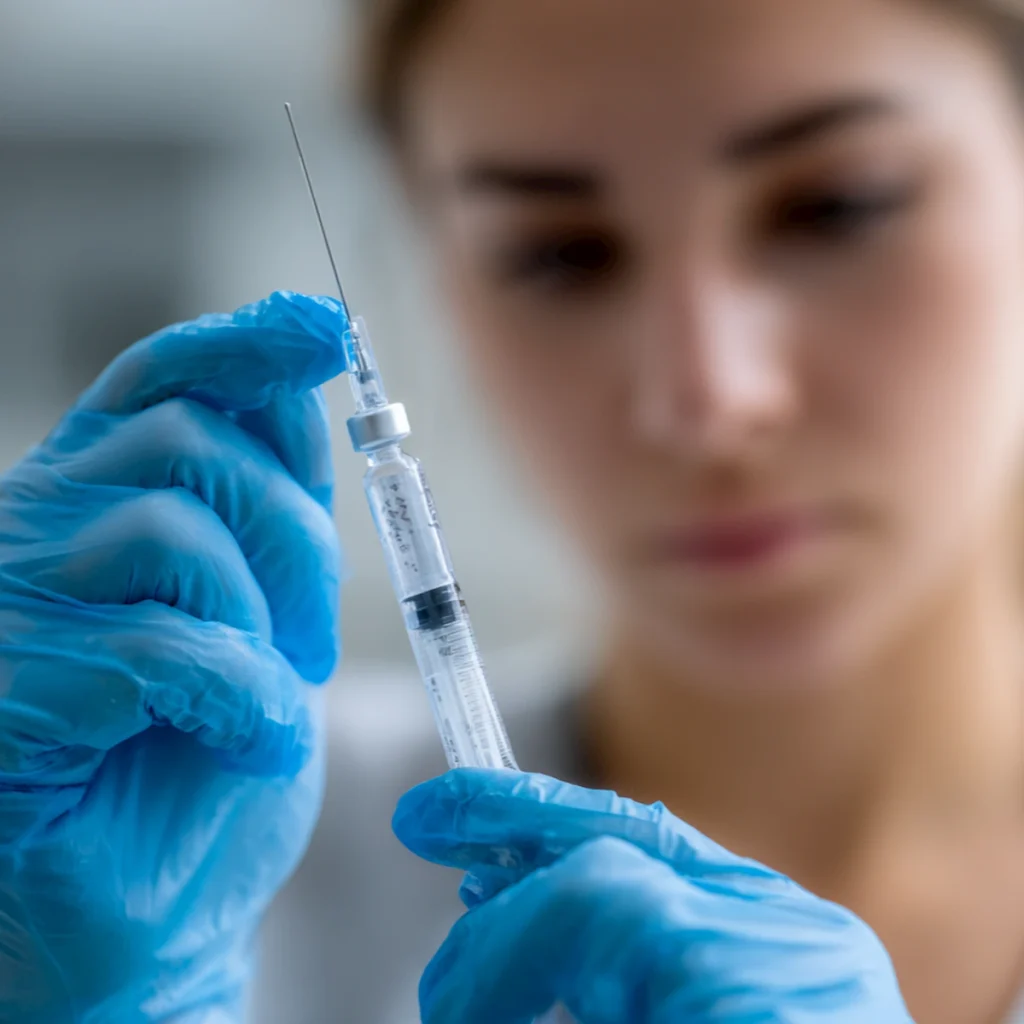Worried about a Novocaine allergy? Discover safe sedation dentistry alternatives at The Dental Anesthesia Center in St. Louis
The concern around allergic reactions remains valid, especially for individuals who have experienced symptoms such as swelling, itching, dizziness, or difficulty breathing after a dental injection. These symptoms can indicate a true allergy or a sensitivity to preservatives, sulfites, or other components in anesthetic solutions.
If you’ve ever experienced an allergic reaction to dental anesthesia—or fear the idea of it—schedule a consultation with The Dental Anesthesia Center.

Understanding Novocaine Allergies and Why They Matter in Dentistry
For many patients, the fear of pain during dental procedures is managed with local anesthetics—commonly thought of as “Novocaine.” However, the term Novocaine (procaine) is often misused today, as it’s largely been replaced by safer and more effective agents like lidocaine, articaine, and mepivacaine. Still, the concern around allergic reactions remains valid, especially for individuals who have experienced symptoms such as swelling, itching, dizziness, or difficulty breathing after a dental injection. These symptoms can indicate a true allergy or a sensitivity to preservatives, sulfites, or other components in anesthetic solutions.
Understanding what causes these reactions is critical. True allergic reactions to modern amide-type anesthetics like lidocaine are extremely rare. Most adverse responses are due to additives (like epinephrine preservatives or latex in delivery devices), vasovagal responses (fainting from anxiety), or toxic reactions to high doses. Nonetheless, a careful dental plan is essential for any patient who suspects or knows they have a novocaine or anesthetic-related allergy. That’s where sedation dentistry becomes an important and often life-changing alternative.
How Sedation Dentistry Offers Safe, Allergy-Conscious Solutions
For patients with sensitivities to injectable anesthetics, sedation dentistry provides a safer, more controlled alternative. At The Dental Anesthesia Center in St. Louis, we specialize in custom-tailored sedation solutions that bypass the need for traditional local anesthetics when appropriate. These alternatives include oral sedation, IV sedation, and even general anesthesia, depending on the severity of the allergy and the complexity of the dental procedure.
For example, IV sedation allows us to use minimal, carefully monitored doses of sedatives while maintaining patient comfort and avoiding problematic substances altogether. General anesthesia, administered by a board-certified dentist anesthesiologist in a hospital-grade setting, ensures that the patient is entirely unconscious and feels no pain, without the need for local anesthetics if contraindicated. This is especially critical for patients who have both severe anxiety and known allergies.
We also use preservative-free local anesthetic options for those who are not allergic to the anesthetic agent itself, but to preservatives or additives commonly found in standard formulations. These options are explicitly sourced for sensitive patients and administered only after a thorough medical review.
Diagnostic Precautions: Confirming and Managing True Allergies
Before undergoing any dental treatment, patients with suspected novocaine allergies should undergo a medical evaluation, including a review of past reactions and, in some cases, an allergist-conducted skin test. At DAC, we collaborate with patients’ primary care physicians and allergists when needed to ensure that every step is safe and fully informed.
Our intake process involves a deep dive into the patient’s medical history, including previous dental experiences, current medications, and any adverse events. This risk assessment helps us determine whether the reaction was truly allergic or related to anxiety, preservatives, or even vasoconstrictors like epinephrine.
This diligence allows us to eliminate guesswork and ensure that patients receive exactly the care they need without compromise—no assumptions, no unnecessary exposure to allergens, and no preventable reactions.
Who Benefits Most from Sedation Alternatives?
While anyone with a known allergy to local anesthetics is an obvious candidate, the benefits of sedation dentistry extend far beyond allergy management. Patients with the following conditions often find sedation dentistry to be life-changing:
- Severe dental anxiety or phobia
- Developmental or cognitive disabilities
- Neurological conditions like autism or cerebral palsy
- Involuntary movements or behavioral challenges
- Trauma or PTSD associated with medical procedures
For these individuals, the ability to undergo treatment comfortably and safely—without risk of allergic reaction—can be the key to restoring both dental health and personal dignity.
Why Choose The Dental Anesthesia Center?
Our center is one of the few in Missouri fully equipped to provide in-office general anesthesia under the care of a board-certified dentist anesthesiologist. We don’t just offer sedation as a service—we specialize in it. Our team is trained to work with patients who have complex medical histories, unique sensitivities, or profound anxiety. We offer:
- A completely judgment-free, patient-first experience
- Sedation plans are built around your specific allergies and needs
- Hospital-level monitoring and safety protocols in a private dental setting
- Collaborations with medical specialists for continuity of care
At DAC, we believe no one should avoid dental care due to fear or allergy. Every patient deserves access to high-quality, pain-free dentistry in an environment that makes them feel safe and respected.
Ready to Talk About Your Options?
If you’ve ever experienced an allergic reaction to dental anesthesia—or fear the idea of it—schedule a consultation with The Dental Anesthesia Center. We’ll walk you through your options and ensure your next dental visit is safe, comfortable, and completely stress-free.
📞 Call us today at (314) 862-7844 or request an appointment online.

